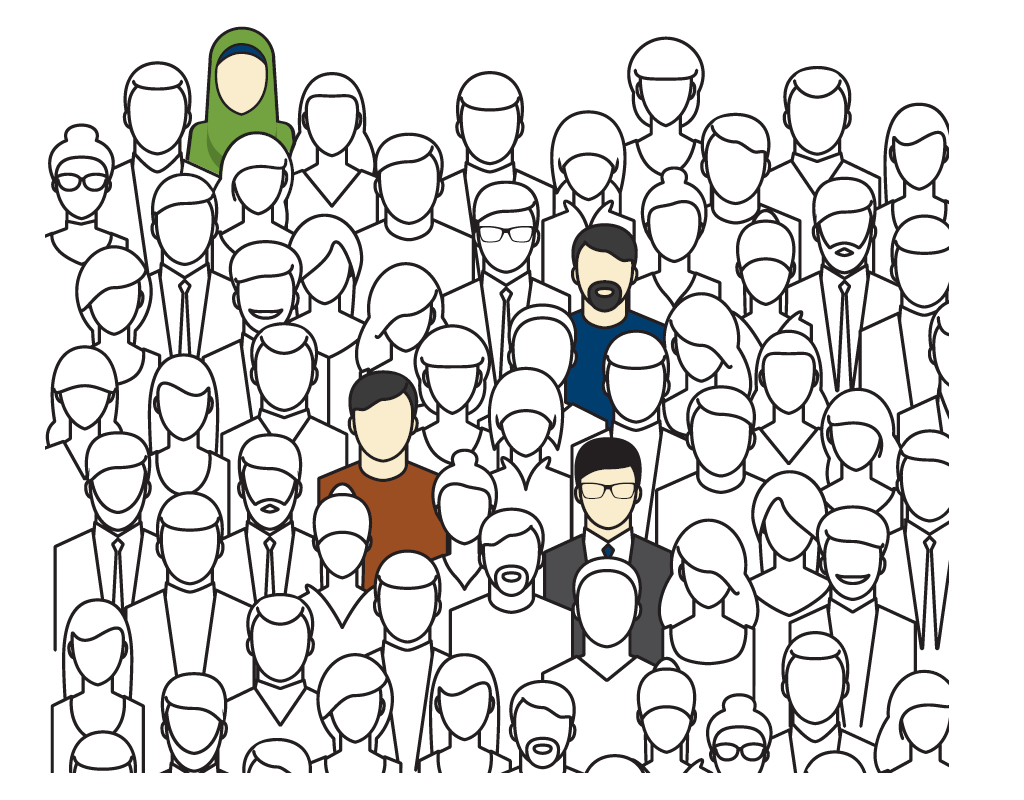The Malay/Muslim community in Singapore is known to have a bulging youth population. It is thus understandable for community leaders to express concern if Malay/Muslim youths, particularly young professionals, are showing, or perceived to show any sense of disengagement from community affairs. In other words, it is important for the community to ensure and sustain the level of civic engagement of its youths. This article attempts to look at the plausible factors that can either enhance or impede this process and suggest ways on how Malay/Muslim organisations (MMOs) can effectively engage young professionals as active participants in the community.
To understand the dynamics between young professionals and community affairs (taken here to refer primarily to MMOs) in the context of community development and civic engagement, it is imperative that we look at factors that fall within the scope of the community itself (micro-level) and those that fall outside (macro-level).
Issues of power and authority are pertinent and must be discussed at the micro-level. There exists in such dynamics, the long-standing relation between leaders and followers, where the issue of engagement is very much a matter of profound interest – questions as to what is to be deliberated and decided upon and how it is to be executed are issues of paramount concern which have significant bearing on the nature of engagement itself. Organisations that uphold democratic principles of deliberation would advocate for an engagement that involves youths as active participants in identifying issues and problems, and in proposing solutions, rather than passive implementers of determined agendas and programmes set by those that occupy top positions.
It is necessary for MMOs to realise and recognise the long-term benefits and impact of a democratic approach to working with youths. This can be inferred from the Deloitte Millennial Survey 2016, where nearly 7,700 millennials from 29 countries between September and October 2015 were surveyed to learn more about their values and ambitions1. Findings from the survey revealed that a majority of young professionals chose to work with organisations that shared their personal values and adopted a creative and inclusive working culture rather than a more authoritarian and rules-based ones. The survey also found that while millennials would not wish to work in a highly regimented and controlled environment, they understood the need for people to be held accountable for their actions and performance, and wanted businesses to focus more on people and less on profits. They expressed a greater sense of control if they worked in organisations that supported their ambitions, whose values were aligned with theirs and which had strong sense of purpose and a collaborative and trust-based working culture. Those with higher responsibilities and control appeared to be more loyal to the organisation.
The structural issue of power and authority is perhaps one major contradiction of civic engagement, where hierarchical structures characterised by a bureaucratic ideology exist within a public sphere. For instance, the ways in which community leaders and youth followers think, behave, act and interact with each other are framed by long-established power relations, which appear as reciprocal when understood in its ideological context. As Angus and Rizvi (1989) observed, ‘when power is exercised through institutions, it affects both the powerful and the powerless in the processes of power relations’2.
However, power is antagonistic insofar as it is being used by the one who possesses it as an instrument to violently or forcefully subjugate and dominate the other, who is structurally deprived of it. This may not always be the case though. Hannah Arendt, for instance, believed in the power of the people which rested on her conviction that people fundamentally desired the ‘public happiness’ that can be achieved when they came and worked together for a common good. For Arendt, power ascends from nonviolent action which involves continuing discussions and respectful exchange of opinions3. In the case of civic engagement, for instance, MMOs may exercise their power to bring about critical consciousness from within the Malay/Muslim community that will facilitate their awareness of a progressive worldview. On the contrary, absolute power may be exercised over the community to the point where the creative energies of its youths are undermined and enthusiasm eventually turns to disengagement.
The undesirable consequence of the latter is inevitable when organisations are trapped within the iron cage of bureaucracy. Organisations that are plagued by what John Kenneth Galbraith called the ‘bureaucratic syndrome’ possess similar legitimate power as autocratic bosses in the corporate workplace. Actions and decisions are based on and supported by rules and policies that are deemed to be grounded on rational values. They have all the rights, and will never think twice in exercising these rights, to issue and enforce commands, as well as to reward and reprimand. Followers, on the other hand, are obliged to carry out the commands and accept the outcomes as it is deemed only rational to do so.
Bureaucratic authority is deemed problematic as far as civic engagement is concerned. The problem could only be overcome when both community leaders and participants make a significant attempt to dislodge their traditionally constructed notion of the nature of their relationship in a civic engagement. As long as community leaders and institutions perceive themselves to be the sole guardians and symbols of authority within the community, while youths are being constantly reminded to uphold the values of discipline and conformity, it would certainly be an uphill task to destabilise power relations in order to achieve a substantive form of civic engagement. Here we need to point out, however, that we are not suggesting an abolition of authority, which is ‘absolutely necessary for the development of freedom’4. The problem is when ‘the authority of the [leader] goes beyond the limits authority has to have in relation to the [follower]s’ freedom, then we no longer have authority and freedom but authoritarianism’5.
Perhaps one way to identify the fundamental difference between authority and authoritarianism is for us to differentiate between rational and irrational authority. While the latter absolutely constrains the freedom of the powerless individual, the former ‘represents the aims of growth and expansion of the individual’6. However, in instances where organisations appear to exercise their authority to provide the necessary freedom for participants, it does not necessarily indicate democratic practice, as more often than not, it lacks the element of autonomy. Hence, when youths are given the freedom to decide, for example, on a programme they want to run, or a community project they want to do, or the role they want to take up in that particular project, all this will ultimately be under the stranglehold of the organisation.
In addition, the structures within which a certain type of authority is being bred need to be considered as well. Organisational values and beliefs tend to become unquestioningly established as ‘the way we do things here’, which in turn shape the very worldview that the people within an organisation bring to problems and solutions. Hence, in an organisation where the idea of democratic engagement has never taken root, where traditional and bureaucratic authority prevails over the years right from its board members and senior management all the way down to the junior executives, the way decisions are made is more likely to be done in an authoritarian manner. Such an organisational culture very much resembles Weber’s iron cage where individuals – lacking all powers of resistance – are forced to inhabit. This happens when ‘a purely technical value becomes viewed as the ultimate and single value in reference to which the organisation of all affairs ought to be decided’.
We have attempted, in this article, to look at the interrelated issues of power, authority and civic engagement at the organisational level, and how they can either enhance or impede democratic practices in engaging young professionals. We have argued that power and authority are necessary in providing substantive freedom for young professionals, and that the type of authority adopted and the manner in which engagements are made by organisations are conditioned by structural factors such as organisational culture. The consequence of insisting on an authoritarian approach can be fatal to a democratic engagement. To overcome this, MMOs need to be critical of their own condition and break themselves free from the iron cage of bureaucracy. ⬛
1 The Deloitte Millennial Survey 2016. (2016) Retrieved from: //www2.deloitte.com/global/en/pages/about-deloitte/articles/millennialsurvey.html.
2 Angus, L. and Rizvi, F. (1989) ‘Power and The Politics Of Participation’, p.13
3 Elisabeth Young-Bruehl (2006) ‘Why Arendt Matters’, p.91.
4 Freire, P., In Horton, M. & Freire, P. (1990) We Make The Road By Walking: Conversations on Education and Social Change, pp.61-62.
5 Ibid.
6 Fromm, E. (1941) Escape from Freedom, p.268.
Muhd Shahril Shaik Abdullah holds a Master of Education (Leadership, Policy and Change) from Monash University and works in a library. His current interest is in radical children’s literature and subversive fairy tales.
Hafiz Zakaria holds a degree in Banking and Finance and currently works in the insurance industry. His interests include issues of science and society.








